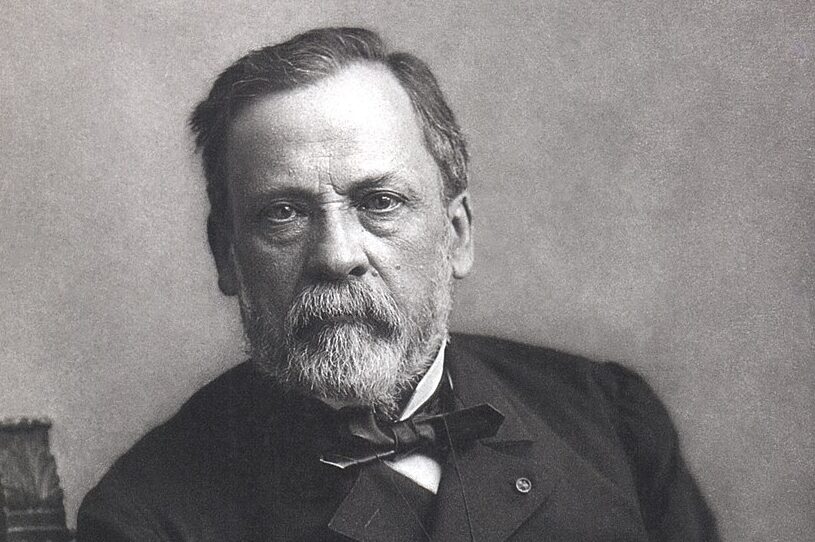
Louis Pasteur was a French microbiologist, chemist, and immunologist who is widely considered to be one of the most important figures in the history of science. Born on December 27, 1822, in Dole, France, Pasteur was the son of a tanner and grew up in modest circumstances. Despite these humble beginnings, Pasteur showed a remarkable aptitude for science from a young age and went on to make groundbreaking discoveries that revolutionized the fields of microbiology, chemistry, and medicine.
After completing his education in Paris, Pasteur began his career as a chemist, focusing primarily on the study of crystals and the polarization of light. However, he soon turned his attention to microbiology, and in 1857, he was appointed Professor of Chemistry and Dean of the Faculty of Sciences at the University of Lille. It was here that Pasteur made his most significant breakthroughs, including the development of pasteurization, a process that heats liquids to kill bacteria and other harmful microorganisms.
Pasteur’s work on pasteurization led to a deeper understanding of the role of microorganisms in disease, and he went on to develop vaccines for several diseases, including anthrax and rabies. His discoveries had a profound impact on public health, and many credit him with saving countless lives through his work on immunization and sterilization.
Pasteur’s success was not without challenges, however. He faced opposition from those who doubted his theories and methods, and he was sometimes criticized for his unorthodox approach to science. Nevertheless, Pasteur persisted, driven by a relentless curiosity and a desire to improve the world through his research.
Today, Pasteur is remembered as one of the greatest scientists of all time, and his legacy lives on in the countless lives he has saved through his work on vaccines and sterilization. His contributions to the field of microbiology have paved the way for generations of scientists, and his impact on medicine and public health continues to be felt around the world.
Here is a timeline of the notable events in the life and career of Louis Pasteur:
- December 27, 1822: Louis Pasteur is born in Dole, France.
- 1842: Pasteur enters the École Normale Supérieure in Paris, where he studies chemistry and physics.
- 1847: Pasteur earns a doctorate in physical sciences from the University of Strasbourg, where he begins his research on crystallography.
- 1854: Pasteur is appointed Professor of Chemistry at the University of Lille.
- 1857: Pasteur discovers the concept of molecular asymmetry, which leads to his work on the polarization of light.
- 1861: Pasteur publishes his first paper on fermentation, in which he demonstrates that microorganisms are responsible for the process.
- 1865: Pasteur develops the process of pasteurization, which involves heating liquids to kill bacteria and other microorganisms.
- 1879: Pasteur develops the first successful vaccine for anthrax, a disease that affects livestock and humans.
- 1881: Pasteur develops a vaccine for rabies, a deadly viral disease that affects humans and animals.
- 1888: Pasteur founds the Pasteur Institute in Paris, which becomes a leading center for research on infectious diseases and immunization.
- September 28, 1895: Louis Pasteur dies in Marnes-la-Coquette, France, at the age of 72.
- 1940: The Pasteur Institute becomes a World Health Organization collaborating center for research and training in microbiology and immunology.
- Present: The legacy of Louis Pasteur continues to be felt in the fields of microbiology, chemistry, and medicine. His discoveries and innovations have saved countless lives and revolutionized our understanding of disease and public health.
5 Interesting Facts about Louis Pasteur:
- Pasteur’s work on germ theory revolutionized the field of medicine and public health, and his discoveries paved the way for modern vaccines, antibiotics, and sterilization techniques.
- Despite his many successes, Pasteur faced significant opposition from the scientific establishment, who often criticized his methods and theories.
- Pasteur was a devout Catholic and believed that his work on microbiology and immunology was a way of serving God and improving the world.
- Pasteur was known for his tireless work ethic and his dedication to his research, often working long hours in his laboratory.
- In addition to his scientific achievements, Pasteur was also a skilled artist and created many drawings and illustrations to accompany his research papers.
5 Quotes from Louis Pasteur:
- “In the fields of observation, chance favors only the prepared mind.”
- “Science knows no country, because knowledge belongs to humanity, and is the torch which illuminates the world.”
- “Let me tell you the secret that has led me to my goal. My strength lies solely in my tenacity.”
- “The role of the infinitely small in nature is infinitely large.”
- “Science and faith are two great pillars on which human serenity rests.”










